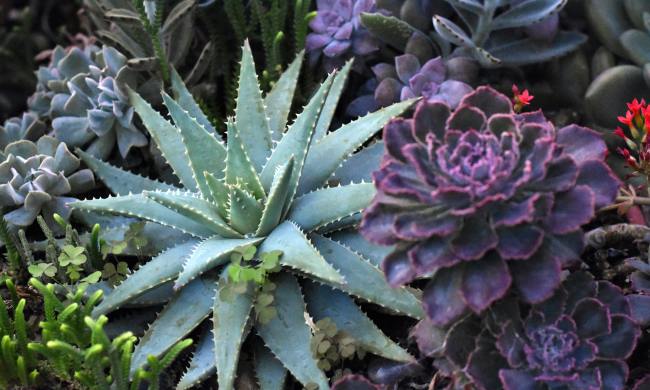You might have heard that it’s a good idea to use coffee grounds in your garden. It’s often touted as a great organic fertilizer, but some gardeners are still skeptical. Should you actually be using coffee grounds in gardens, or does this advice fall a little flat?
As it turns out, it depends on your soil composition and what plants you’re growing. If you’re unsure about whether this tip is right for you, don’t worry! We’ll walk you through when coffee grounds are perfect for your plants and when your ground is better off without the grounds.
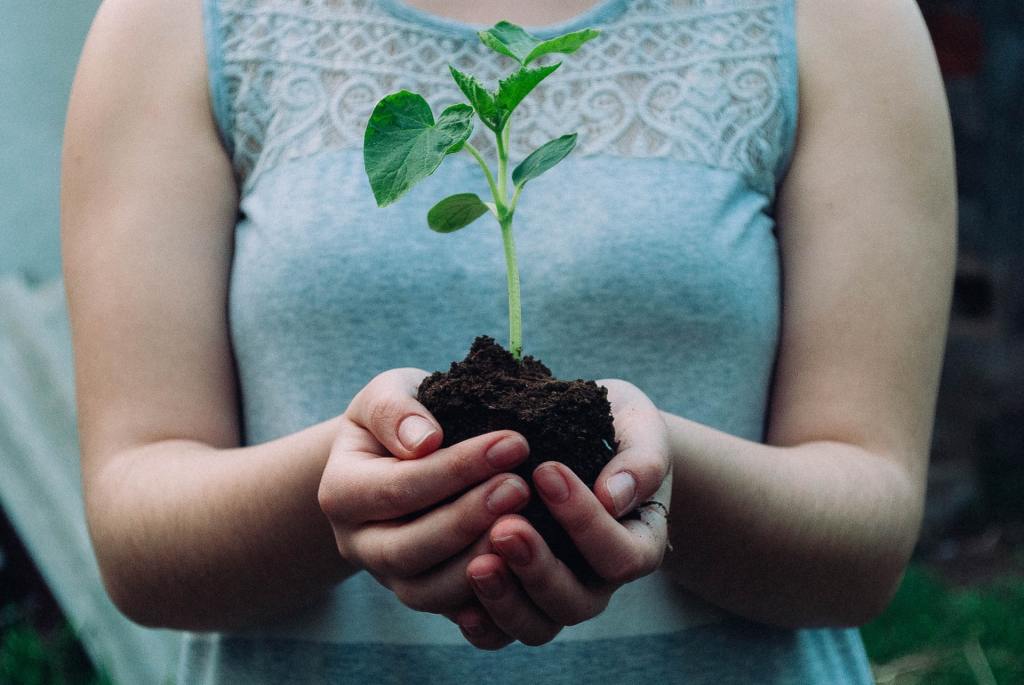
Coffee grounds are a source of nitrogen
If you look at a breakdown of coffee grounds, they are roughly 2% nitrogen. This may not seem like a lot, but this 2% can add up, especially when you consider how much coffee the average person drinks in a month. Adding your used coffee grounds into your compost every day is a great way to create a nitrogen-rich compost for your garden.
As with most organic compounds, the nitrogen spreads throughout your soil or compost when it begins to break down. This makes it more similar to a slow-release fertilizer, adding nitrogen to your garden or compost over an extended period.
However, coffee grounds aren’t the only way to add nitrogen to your garden. Although coffee grounds are convenient for many gardeners and rich in nitrogen, practically any organic matter added to your compost will contribute some nitrogen. If you prefer tea over coffee, then there’s even better news. You can compost your tea bags, which contain roughly 4.4% nitrogen!
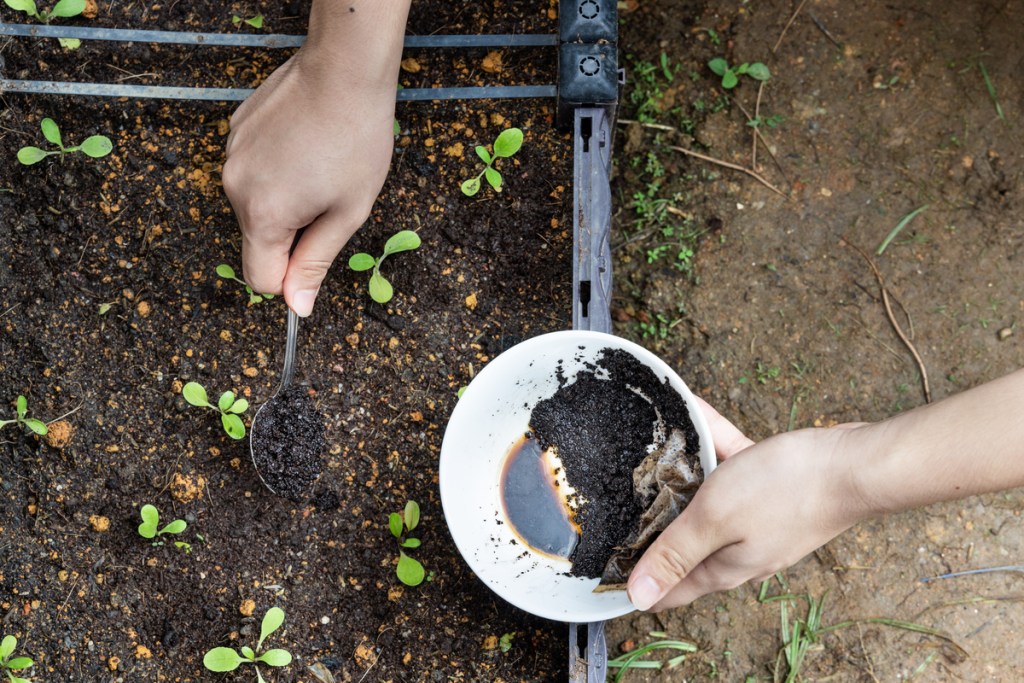
Coffee grounds add acidity to the soil
While most plants prefer a fairly neutral pH, some plants actually prefer slightly acidic soil. This means soils with a pH just below 7, typically in the 6.5 to 6.9 range, although it depends on the plant. Blueberry bushes and azaleas prefer acidic soil, for example, as do rhododendrons. There are plenty of ways to lower your soil’s pH, but you have to be careful not to lower it too much.
Coffee grounds are acidic, but only mildly so. They can lower the general pH of your soil gradually, and there is very little risk of adding too much acidity to your soil. Mixing coffee grounds directly into the soil around plants that appreciate acidic soil can help those plants flourish, without majorly impacting the other plants in your garden. If you don’t drink a lot of coffee but need to increase the acidity of a large garden, then you can use leaf mold, peat moss, or pine straw.
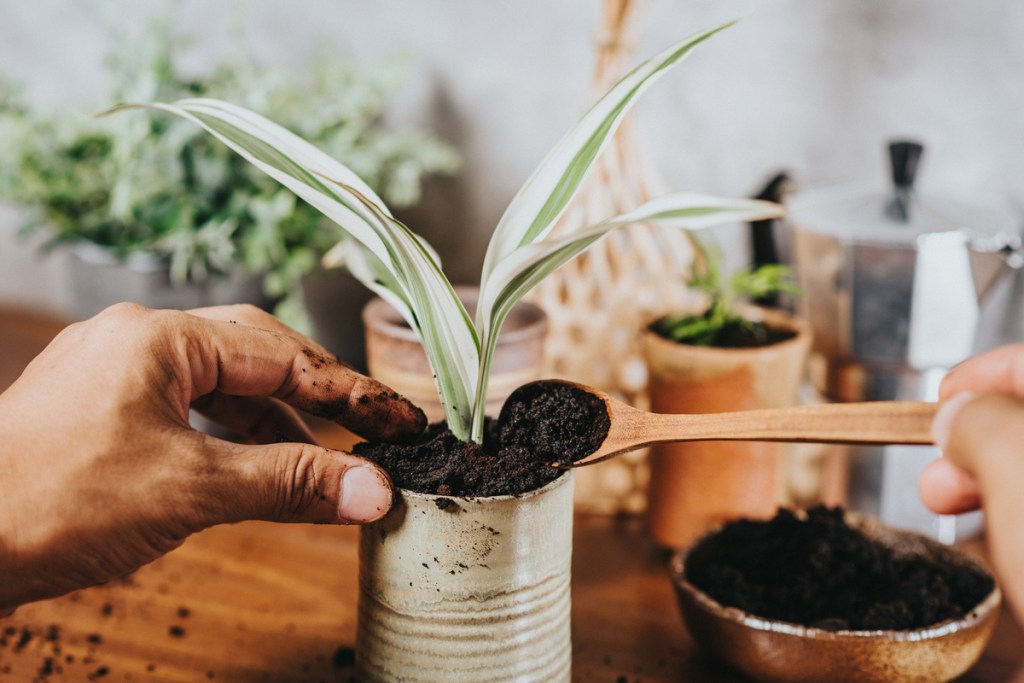
Using coffee grounds reduces food waste
Admittedly, coffee grounds aren’t the largest source of food waste. However, every little bit counts, and it all adds up. If you’re already composting, then your coffee grounds and coffee filters can be composted, which means just a little less is going into the garbage every day. Using coffee grounds in your garden is an easy way to make your home and life slightly more sustainable.
Reducing food waste is good for the environment, but there are other ways to make a larger impact. The vast majority of food waste and pollution comes from large companies, not individuals. The best way to protect the planet is to let companies and legislators know that you care about the environment, either through letters, emails, or phone calls. This can be intimidating sometimes, but it’s much easier with friends or neighbors.
Consider looking for local environmental groups, or form one yourself. You can get together with your community members to write petitions or letters, clean up local streams or parks, start a community garden, and brainstorm new ways to help your community accomplish its environmental goals. Of course, you can all compost your coffee grounds as well.
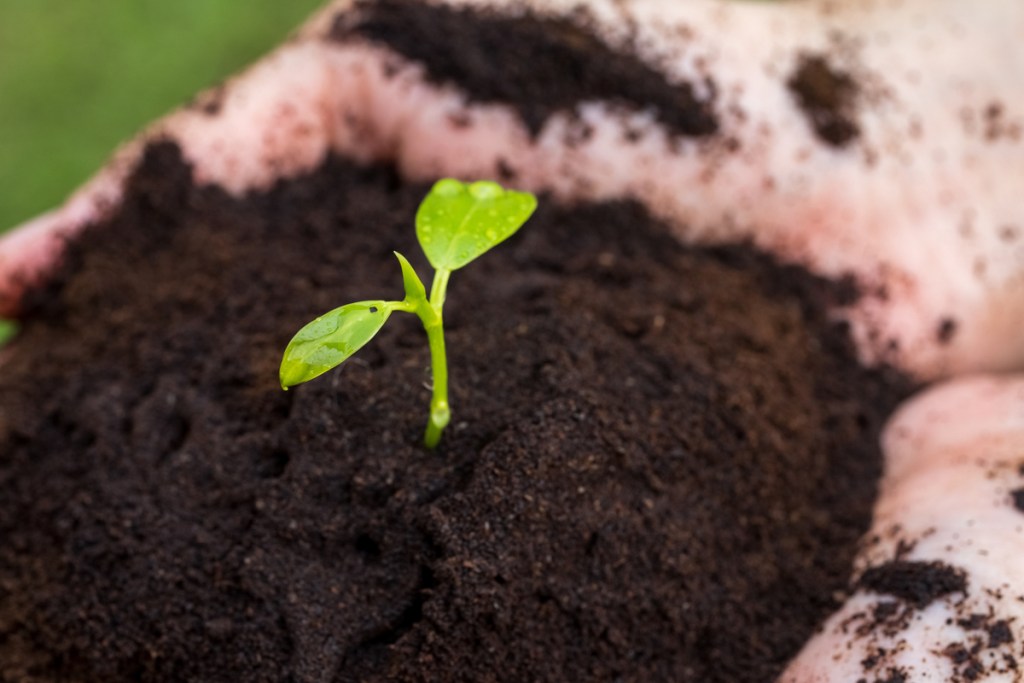
When shouldn’t you use coffee grounds?
There are a few times when using coffee grounds isn’t a good idea, or at least not the best idea. One of those times is if you need an immediate boost of nitrogen in your soil. If your plants have a nitrogen deficiency, then adding coffee grounds isn’t going to help, since your plants will have to wait for the coffee grounds to break down before they can access the nitrogen. Instead, add compost or a nitrogen fertilizer.
The opposite is also true. If your garden has too much nitrogen, then adding coffee grounds certainly will not help. Too much nitrogen can lead to nitrogen burn, which is just as detrimental as a nitrogen deficiency. This is why testing your soil’s nutrient balance is important. The same can be said about pH, as well. If your soil is already too acidic, or if you have plants that are sensitive to acidity, then using coffee grounds in your garden is a bad idea.
Using coffee grounds is just like using any organic matter in your gardening. Coffee grounds add nutrients and change the pH of your soil. Sometimes, it can be very helpful. Other times, they are unnecessary or even potentially harmful, like if you already have too much nitrogen in your soil. If you aren’t sure whether coffee grounds will do your garden any good if applied directly, then you can always add them to your compost.


